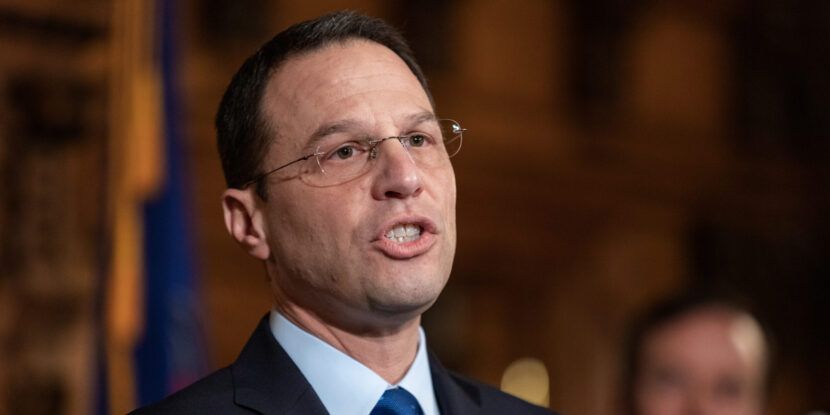Nationalist and populist political parties will enter 2024 hoping for a bumper election year. Over the course of the year, 40 national elections will occur, representing 41 percent of the global population, and 42 percent of global gross domestic product.
If 2016 seemed like a populist-nationalist year to remember, 2024 could easily surpass it. Here are the most critical elections to watch for in 2024:
European Parliament: June 6-9, 2024
The European Union’s 27 member states will head to the polls in early June, choosing their representation at the supranational, globalist European Parliament. Typically already an election which attracts massive “protest votes,” Europe’s worsening migrant crisis will naturally push voters to the right, a concern already top of mind for European Union (EU) apparatchiks like Josep Borrell.
Recent victories for nationalist and populist parties in Italy, Finland, the Netherlands, and Sweden also underscore a snowballing backlash against European elites over their embrace of open borders. The Identity and Democracy group, a bloc of eurosceptic and nationalist parties from 10 different European nations, appears poised to challenge the Liberals for position as the third largest voting block in the European Parliament. This is no small feat, given how heavily the deck is stacked against them by European Parliamentary authorities.
Continued economic stagnation, discontent over the accelerating migrant crisis, persistent warmongering, and general disenfranchisement could manifest a new, tectonic shift in European Union politics.
America, November 5, 2024.
Former President Donald Trump continues to pull ahead of Democrat incumbent Joe Biden. Much like Europe, the crisis at the U.S. southern border is fueling a voter backlash against Democrats nationally. Alongside a weak economy throughout 2023/24, as well as soaring crime and intensifying culture wars, America is evidently looking for a change. Biden’s approval ratings are lower than Trump’s at the same point in his first term, and nearly eight in 10 Americans say the country is on the wrong track.
Early polling also indicates Trump leads Biden in all but one of the critical 2024 swing states, with Biden yet to faces the additional headwinds from an advancing Congressional impeachment inquiry into his abuses of office and public corruption. Also of great concern for the 81-year old Democrat is growing discontent over the Ukraine-Russia war, the Israel-Hamas War, and indeed his popularity amongst minority voters.
In the hopes of heading off a Trump victory in 2024, the Biden regime has launched an unprecedented law-fare campaign against the near-certain Republican nominee. If elected, Trump has indicated his intent to use his second term to kneecap America’s “deep state” – using tools like the Schedule F designation to remove career federal bureaucrats.
One critical issue facing the U.S. electorate, however, is the integrity of the nation’s ballot processes. Long viewed as the “international observers”, the U.S. has fallen behind other nations in prioritizing election integrity, paper ballots, same day voting, and same day counting. Instead, America’s elections are plagued by weeks of mail-in voting, machine errors, and state-level denialism of such problems. These issues have routinely been exploited, predominantly by the political left, at both a local and national level.
The United Kingdom (by Jan 2025).
Though it will likely occur in 2024, the manner in which the UK holds its elections is somewhat quirky, with the nation having tried the idea of a “fixed term Parliament” before reverting to a looser system whereby the Prime Minister can advise the Monarch to dissolve parliament at any point within a five year period.
Polls indicate the governing “Conservative” Party is likely to lose its functioning majority in Parliament to the Labour Party, which hasn’t been in power since the end of the war-hungry Blair/Brown regime of 1997-2010.
Populists enjoyed great influence in British politics through much of the Conservatives’ years in office, with the Damoclean sword of Nigel Farage’s UK Independence Party (UKIP) forcing then-Prime Minister David Cameron to offer a referendum on leaving the EU – a plebiscite which was won by a 52-48 margin. Farage then went on to set up the Brexit Party, to ensure Britain actually left the EU.
Now reconstituted as the Reform Party, the organization has been a victim of its own success, sinking in the polls, and struggling to cut through outside the viewership of the less-left-wing ‘GB News’ channel.
The Conservatives, meanwhile, have squandered their majority, allowing the public tax burden to increase, boosting mass immigration, and supporting more wars around the world.
Sir Keir Starmer’s Labour Party is likely to further promote mass migration, climate change alarmism, and tax-hiking policies, a notion which has led Farage to seriously consider a return to frontline politics in order to stave off the country’s further decline.
Belgium Might Disappear.
The European Parliament elections will be closely followed by a federal election in Belgium, which French wartime leader Charles De Gaulle disparaged as “a country invented by the British to annoy the French.” The nation’s status as the EU institutions’ main center of power grants it outsized importance – and the 2024 elections could set it on a path to breaking up altogether.
Belgium is divided between French-speaking Wallonia to the south and Dutch-speaking Flanders to the north, with the EU and national capital of Brussels a Francophone enclave inside the latter. The country often goes for long periods without an elected parliament, as rival parties from the two regions struggle to hammer out coalition agreements. In Flanders, the populist Flemish independentist party Vlaams Belang (Flemish Interest) is currently prospering at the expense of the establishment right.
Vlaams Belang’s growing appeal is driven by public dissatisfaction over a worsening migrant crisis, in a country already home to notorious no-go zones. Leader Tom Van Grieken has described the Belgian state as a “forced marriage,” and a strong election result could enable him to make good on a pledge to secure an “orderly division” of the country – or, if necessary, unilateral secession.
And So Much More.
With around forty national elections taking place in 2024, nationalist and populist parties will likely be competitive in both national and regional elections in Austria, India, South Korea, Romania, the Czech Republic, Portugal, Slovakia, Finland, Croatia, and further afield.
Taiwan will face a close national election between the liberal Democratic Progressive Party, the nationalist Kuomintang, and the populist Taiwan People’s Party. Russia and Ukraine are poised to face potentially impactful elections too. The National Pulse will be providing further insight as each election grows nearer.
The National Pulse will be here to cover it all. Make sure you have the free app and turn on notifications to stay informed. Will Upton, Jack Montgomery, and Raheem Kassam contributed to this report.



















